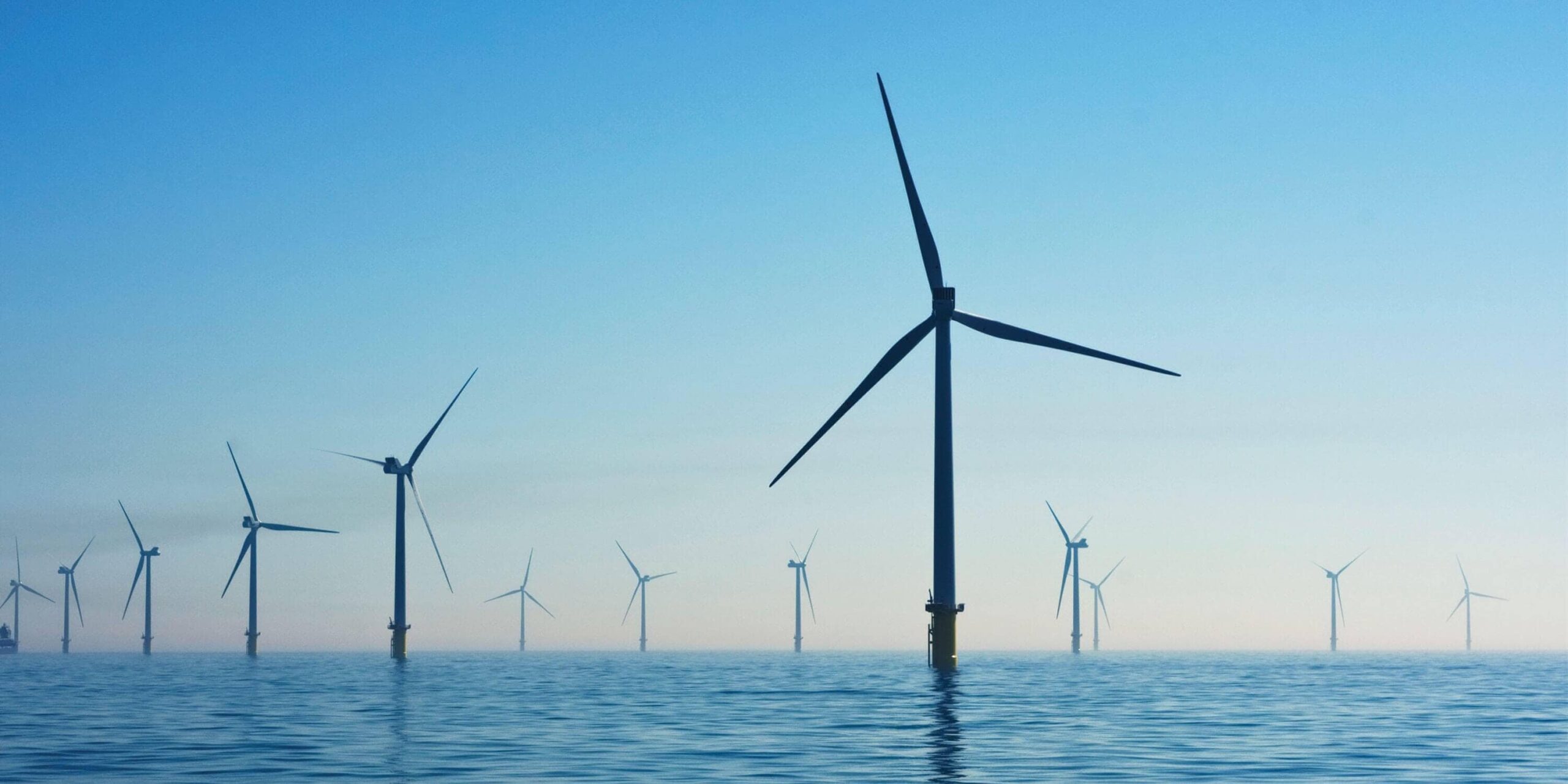Forging our Clean Energy Future

Dubbed the “United States’ Hottest Clean Energy Economy” by Forbes, New Jersey is poised to become a national leader in mitigating the impacts of climate change through ambitious clean energy and energy storage targets. In pursuing its goal to rely entirely on renewable energy by 2050, the State is aligning its interests with those of industry. Nearly three quarters of large companies headquartered in the U.S. are planning to make additional renewable energy purchases. Companies including 3M, Johnson & Johnson, Novo Nordisk, Firmenich, Mars, Grupo Bimbo, and Ricoh – all companies that have a presence in New Jersey – have committed to 100% renewable energy.
As the State University, Rutgers’ research benefits the well-being of New Jersey citizens. For the past eight years, Rutgers has served as the secretariat for the New Jersey Climate Change Alliance, working to prepare the state for the effects of climate change. In June 2017, Rutgers signed a “we are still in” pledge in support of the Paris Climate Accord. Backing its words with substantive action, dozens of Rutgers’ research centers and programs are collaborating with government and industry to optimize clean energy technologies and policies.
Reaching Net Zero
Serving as a multidisciplinary hub for clean energy research, education, policy advice, and community outreach, the Rutgers Energy Institute (REI) seeks to develop efficient and cost-effective pathways for producing energy sources with zero net carbon emissions.
REI pursues research in five core areas:
- catalysis
- nanomaterials, photovoltaics, and storage
- bioenergy and bioproducts
- carbon-negative technologies and energy economics
- environment and policy systems
Rutgers researchers are pursuing some obvious and not so obvious pathways to reach net zero. Take for example, walking pathways. Sidewalks are typically made of concrete, because it is affordable and durable. However, the process to make concrete is energy and water intensive. A Rutgers professor co-invented a technology that can transform the production process, reducing the carbon footprint of concrete by up to 70%. This new process is being commercialized through Piscataway-based Solidia Technologies, recognized as the 2015 Business of the Year by NJBIZ. The technology has broader applicability and has already been used to make 30+ different materials. It also holds promise for creating materials for lightweight vehicles, which consume less fuel.
A Leader in Offshore Wind
Governor Murphy is putting in place key policies and resources to support the formation of a new wind energy cluster in New Jersey. Rutgers is well positioned to help accelerate the growth of this industry. Researchers in the Department of Marine and Coastal Sciences at the School of Environmental and Biological Sciences, have developed a technique to more accurately predict sea breezes, which informs ideal sites for wind energy systems.
A technology piloted at the Rutgers Center for Advanced Infrastructure and Transportation is being used to make wind turbines more efficient. XPEED Turbine Technology, a Rutgers spin-off, is committed to improving wind farms profitability through its “Aerodynamic Flow Deflectors” that improve annual energy production.
Various schools and units across Rutgers are focused on clean energy profitability. The Rutgers Laboratory for Energy Smart Systems, in collaboration with the Rutgers Center for Energy, Economics and Environmental Policy models the impacts of offshore wind energy generation and storage on wholesale and retail electricity markets and power systems. The School of Management and Labor Relations (SMLR) assesses the impact of the transition toward renewable energy sources on local and state labor markets. Given this expertise, it’s no surprise that Rutgers – under the leadership of the REI Wind Group – is part of a team selected to develop the State’s Offshore Wind Strategic Plan.
Innovation in Bioenergy
Recognizing the links between food and climate change, Rutgers researchers are studying ways to utilize food waste for energy production, such as through converting it to biogas via a process called Anaerobic Digestion. Biogas can be used for power, heat, and potentially as Compressed Natural Gas. In New Jersey, there is potential to deliver 654 MW of power (approx. 6.4% of NJ’s electricity consumption) from bioenergy. A Rutgers team at the New Jersey Agricultural Experiment Station conducted the first ever assessment of bioenergy potential for the state, which includes a county-level map of available feedstock and an interactive bioenergy calculator. This information helps inform policies to target effective sources of bioenergy production and business decisions for establishing new bioenergy companies in the state.
A Hub for Clean Energy Startups
The Rutgers EcoComplex, Clean Energy Innovation Center, a unit of the New Jersey Agricultural Experiment Station, is a business incubator for clean energy companies and offers a range of services to support clean energy startups. These services include a proof of concept center and accelerator program which provides state-of-the-art lab space; technology verification and engineering support; regulatory and permitting guidance; and technical training. New Jersey-based companies can leverage the New Jersey Clean Energy Resource Network, a database managed by the Rutgers EcoComplex to help businesses identify funding and assistance programs applicable to their clean energy interests. Through funding from the US Economic Development Administration, the EcoComplex offers additional business services through its EcoIgnite program which provides mentoring, pitch events, networking and financial support for incubator space. In addition, the EcoComplex has a vibrant international business attraction program that supports foreign companies interested in coming to New Jersey to launch their entry in the US market.
All of these efforts by Rutgers University catalyze the development of a strong clean energy cluster in New Jersey, enabling the state to be a model for the nation in achieving ambitious clean energy goals.
Submitted by:
Peggy Brennan-Tonetta, Ph.D., Executive Director, Economic Development and Innovation, New Jersey Agricultural Experiment Station, Rutgers University.
Jessica Paolini, Assistant Director, Economic Development and Innovation, New Jersey Agricultural Experiment Station, Rutgers University.
Let's Get Started
Discover what New Jersey can do for you and your business. Fill out the form below to unlock a guide tailored to your industry.